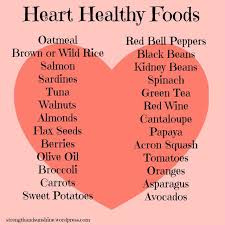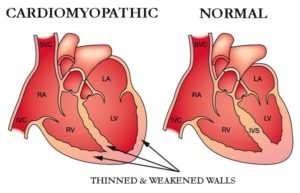
Recently Diagnosed or Relapsed? Stop Looking For a Miracle Cure, and Use Evidence-Based Therapies To Enhance Your Treatment and Prolong Your Remission
Multiple Myeloma an incurable disease, but I have spent the last 25 years in remission using a blend of conventional oncology and evidence-based nutrition, supplementation, and lifestyle therapies from peer-reviewed studies that your oncologist probably hasn't told you about.
Click the orange button to the right to learn more about what you can start doing today.
- You are here:
- Home »
- Blog »
- Multiple Myeloma »
- What is the Best Treatment for Multiple Myeloma?
What is the Best Treatment for Multiple Myeloma?

What is the best treatment for Multiple Myeloma? Do these treatments (chemotherapy) cause side effects? If so, what are the side effects and can I prevent them?
Hi David, I was diagnosed 6 years ago with Kappa light chain disease. I’ve been on several medications during this time including a stem cell transplant. I have relapsed now and my oncologist wants to place me on Krypolis, Darzalex and Dexamethasone.
Currently on Pomalyst with Darzalex and Dexamethasone but seems to be failing me after a year and a half. I am reading side effects of Krypolis with possible cardiac issues.
It’s either risk these side effects or light chains increasing.
- Taking dexamethasone which gives me high very high glucose so now on insulin and 2 more diabetic drugs-
- Pomalyst which gave me blood clots-
- Velcade which gave me neuropayhy and another drug which gave me shingles.
I really do not want to develop a heart condition. That I feel would be the end of me! This illness has been a rough one but still here to talk about it. At this point, do not know where to take this.
I feel I may have no choice and take the Krypolis or maybe not?
As a long time survivor, do you know of anyone else who is on Krypolis and how are they doing with it? I know we are all different and react differently to the medications. Thanks for reading this. Rick
- Taking dexamethasone which gives me high very high glucose so now on insulin and 2 more diabetic drugs.
- Pomalyst which gave me blood clots,
- Velcade which gave me neuropathy and another drug which gave me shingles.
- MM Survivor
- MM Cancer Coach
- Director PeopleBeatingCancer
Recommended Reading:
Cardiac toxicity risk factors identified with relapsed multiple myeloma therapy
“More than half of patients with relapsed multiple myeloma treated with carfilzomib experienced cardiac issues during treatment, according to a multi-institutional study. The study recommends that patients undergo a detailed cardiovascular history before being prescribed carfilzomib and then be monitored with natriuretic peptide testing, an indicator for heart failure.
The study looked at two proteasome inhibitor therapies, carfilzomib and bortezomib. While prior studies have demonstrated a modest increase in cardiovascular adverse events (CVAEs) with carfilzomib, this study monitored patients for predictors of CVAEs and found a greater incidence, with 51% of patients experiencing CVAEs, including heart failure, hypertension, arrhythmia, acute coronary syndrome, pulmonary hypertension and venous thromboembolism.
The incidence of CVAEs with bortezomib therapy was substantially lower, accounting for 17% of patients..
Chemo-Induced Heart Failure-Cardiac Rehabilitation- Omega-3 fatty acids
“High plasma levels of the kinds of fatty acids found in fish oil were associated with a lower long-term risk for new heart failure (HF), whether with reduced or preserved ejection fraction…”
I fall into the “preserved ejection fraction” category. I credit nutrition and supplementation such as omega-3 fatty acids for managing my chemotherapy-induced cardiomyopathy aka heart failure…”
Protecting the heart in cancer therapy
” Regrettably, cardiovascular disease has risen in the aftermath as one of the most devastating consequences of cancer therapies.
In this work, we define cancer therapeutics-induced cardiotoxicity as the direct or indirect cardiovascular injury or injurious effect caused by cancer therapies. We describe four progressive stages of this condition and four corresponding levels of prevention, each having a specific goal, focus, and means of action.
We subsequently unfold this didactic framework, surveying mechanisms of cardiotoxicity, risk factors, cardioprotectants, biomarkers, and diagnostic imaging modalities. Finally, we outline the most current evidence-based recommendations in this area according to multidisciplinary expert consensus guidelines…”


